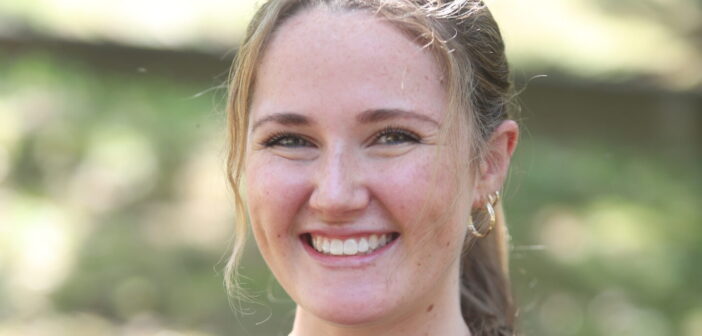In college, as students juggle academics, extracurriculars and social responsibilities, they may often put physical wellbeing on the back burner. Though many of us condition ourselves to run on less than six hours of sleep, far too many cups of coffee and afternoon naps, this is neither sustainable nor healthy.
Adults are supposed to get between seven and eight hours of sleep a night, numbers that are rarely achieved by college students.
According to an article by the peer reviewed journal Sleep Medicine, “College students report average weekday sleep durations between 7.0 and 7.2 (hours), despite requiring about 9 (hours) for optimal functioning.”
Sleep deprivation is detrimental in the short term, as it impacts one’s mood, stress levels and physical well-being.
In a study on college students conducted by The Journal of Adolescent Health, “Participants categorized as having poor-quality sleep had significantly greater negative mood sub-scale scores (anger, confusion, depression, fatigue and tension), compared to those with good-quality sleep. Poor-quality sleepers also reported higher levels of stress during the week and weekends, compared to optimal-quality sleepers. Poor-quality sleepers also reported significantly more physical illness than optimal- and borderline-quality sleepers.”
Additionally, in the long term, lack of sleep increases one’s risk for heart disease, kidney disease, high blood pressure, diabetes and strokes, according to the U.S. Department of Health and Human Services.
Due to limited sleep at night, napping is common among college students, whether it be midday between classes or in the afternoon in preparation for a late night out.
The U.S. Department of Health and Human Services said, “Naps may provide a short-term boost in alertness and performance. However, napping doesn’t provide all of the other benefits of night-time sleep.”
A nap might give you that extra energy you needed to write that essay you procrastinated on or to go out with friends until the middle of the night, but it cannot replace the hours of sleep you are missing overnight. It is important to prioritize sleep, as it impacts every facet of your life.
Along with staying up late and napping during the day, college students have a tendency to drink excessive amounts of coffee, energy drinks or other caffeinated beverages. Some also take caffeine pills and other stimulants to stay awake or alert.
According to The Mayo Clinic, “Up to 400 milligrams (mg) of caffeine a day appears to be safe for most healthy adults. That’s roughly the amount of caffeine in four cups of brewed coffee, 10 cans of cola or two ‘energy shot’ drinks. Keep in mind that the actual caffeine content in beverages varies widely, especially among energy drinks.”
Some college students exceed this 400 mg baseline, accidentally or purposefully. This overindulgence can be extremely harmful, both mentally and physically.
According to MedlinePlus, consuming too much caffeine can lead to restlessness, shakiness, insomnia, dizziness, headaches, increased heart rate, dehydration and dependency.
Although they are not as common as caffeine, other drugs like alcohol and stimulants may exacerbate sleep problems as well. Unfortunately, the college environment provides students with increased exposure to these substances.
“Those with poor sleep quality were more than twice as likely to report using over the counter or prescription stimulant medications at least once a month to help keep them awake, compared to those with good sleep quality,” according to The Journal of Adolescent Health.
Sleep-deprivation, napping and caffeine or drug indulgence often creates a vicious cycle for college students, as tiredness leads to caffeine consumption which leads to inability to sleep which leads back to tiredness.
It is crucial to recognize your individual sleep schedule and caffeine and stimulant usage and figure out what works best for your mind and body.
To learn more about healthy habits, especially regarding sleep hygiene, an on-campus resource students can go to is the Lehigh’s Health Advancement and Prevention Strategies Office.
Lehigh’s Peer Health Advisors also offers numerous resources and tips for getting enough sleep and managing things like stress or drug use that inhibits quality of sleep.






Comment policy
Comments posted to The Brown and White website are reviewed by a moderator before being approved. Incendiary speech or harassing language, including comments targeted at individuals, may be deemed unacceptable and not published. Spam and other soliciting will also be declined.
The Brown and White also reserves the right to not publish entirely anonymous comments.